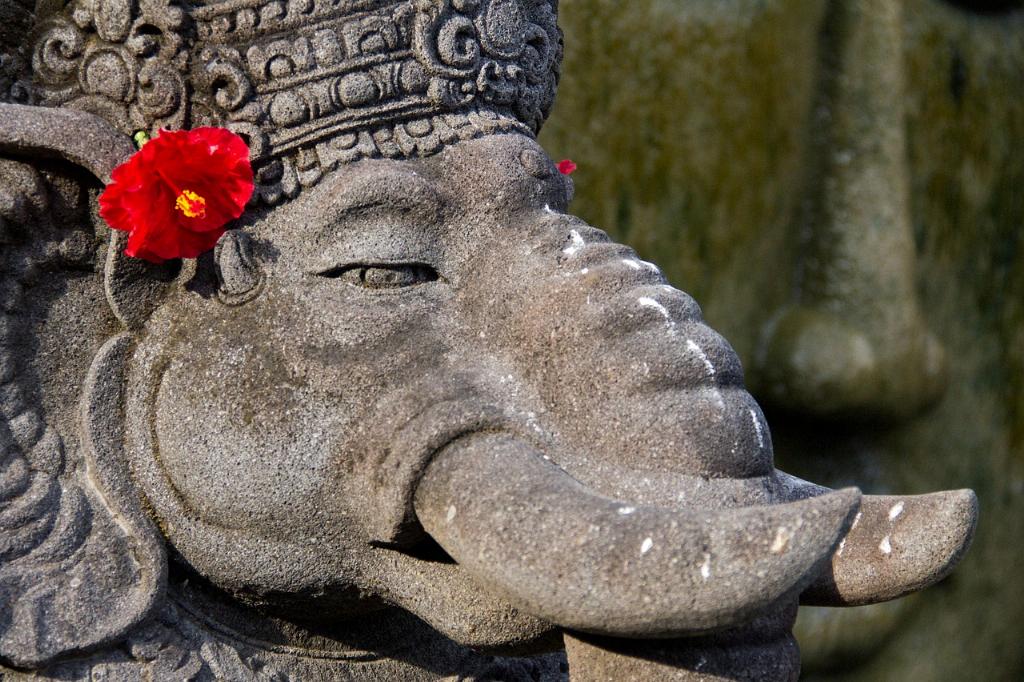Hinduism, one of the oldest religions in the world, encompasses a rich tapestry of beliefs, traditions, and practices. Animals hold a significant place in Hindu mythology and are considered sacred beings. They are revered and associated with various gods and goddesses. Understanding the significance of these holy animals in Hinduism provides insight into the religious and cultural fabric of this vast tradition.
Sacred Animals in Hindu Mythology
Cow (Gau)
One of the most revered animals in Hinduism is the cow. Symbolizing abundance, motherhood, and purity, cows hold a special place in Hindu culture. They are believed to be the abode of several deities, with Lord Krishna being frequently associated with cows. Cows are worshipped during festivals and considered providers of nourishment and prosperity.
Elephant (Gaja)
The elephant is another animal deeply entrenched in Hindu mythology. Known for their intelligence and strength, elephants are associated with Lord Ganesha, the elephant-headed deity who removes obstacles and bestows blessings. They symbolize wisdom, courage, and abundance, and are often a central figure in processions and temple rituals.
Monkey (Hanuman)
In Hindu mythology, the monkey is associated with Lord Hanuman, a revered deity known for his fidelity, devotion, and extraordinary powers. Hanuman is hailed as the epitome of strength and loyalty. Monkeys hold spiritual significance and are believed to bring good fortune and protection to devotees.
Peacock (Mayura)
Peacocks hold an ethereal charm in Hinduism, as they are associated with Goddess Saraswati, the deity of knowledge, arts, and music. Their vibrant feathers symbolize beauty, divinity, and grace. Peacocks often adorn Hindu temples, representing prosperity and spiritual enlightenment.
Snake (Naga)
Snakes, particularly cobras, have a prominent place in Hindu mythology. Nagas, or serpent deities, are believed to possess supernatural powers and guard sacred sites. Snakes symbolize fertility, transformation, and rejuvenation. They are worshipped during Nag Panchami and Nagula Chavithi festivals, seeking their blessings and protection.
Other Holy Animals in Hinduism
Monkey (Langur)
Langurs are also revered in Hindu folklore and traditions. They are believed to be the companions of Lord Hanuman and are especially associated with the worship of Lord Rama. Devotees revere langurs as sacred beings and consider them auspicious.
Swan (Hamsa)
The swan, known as Hamsa, holds metaphorical significance in Hinduism. It represents discrimination, purity, and the ability to separate the eternal truth from the transient material world. Hamsa metaphorically represents the soul’s journey towards spiritual enlightenment.
Tortoise (Kurma)
Tortoises, particularly the Kurma avatar (incarnation) of Lord Vishnu, are highly regarded in Hindu mythology. The tortoise symbolizes stability, patience, and wisdom. It serves as a reminder of the divine presence in all beings and the necessity of maintaining balance.
Lion (Simha)
The lion, known as Simha, embodies power, courage, and royalty in Hindu traditions. It symbolizes the strength of divine forces and is often associated with goddesses such as Durga and Bhairavi. Lions are revered for their majestic presence and are represented in various forms of Hindu iconography.
Peacock (Mor)
In different Hindu communities, peacocks hold varying degrees of significance. They are seen as vehicles or mounts of deities, while their feathers are believed to possess healing properties. Peacock dances and rituals are performed to honor these beautiful birds during certain festivals.

Conclusion
The holy animals in Hinduism embody deep spiritual and cultural associations. From revered cows representing prosperity to mighty elephants symbolizing wisdom, each animal holds a unique place in Hindu mythology. Understanding the significance of these sacred animals provides valuable insights into the beliefs and practices within Hinduism. It highlights the reverence Hindus have for the natural world and their desire to live in harmony with all living beings.
Exploring the diverse beliefs and traditions surrounding these holy animals allows us to gain a deeper appreciation for the multifaceted nature of Hinduism. It reminds us of the interconnectedness of all beings and the universal values of love, compassion, and respect for all forms of life.
